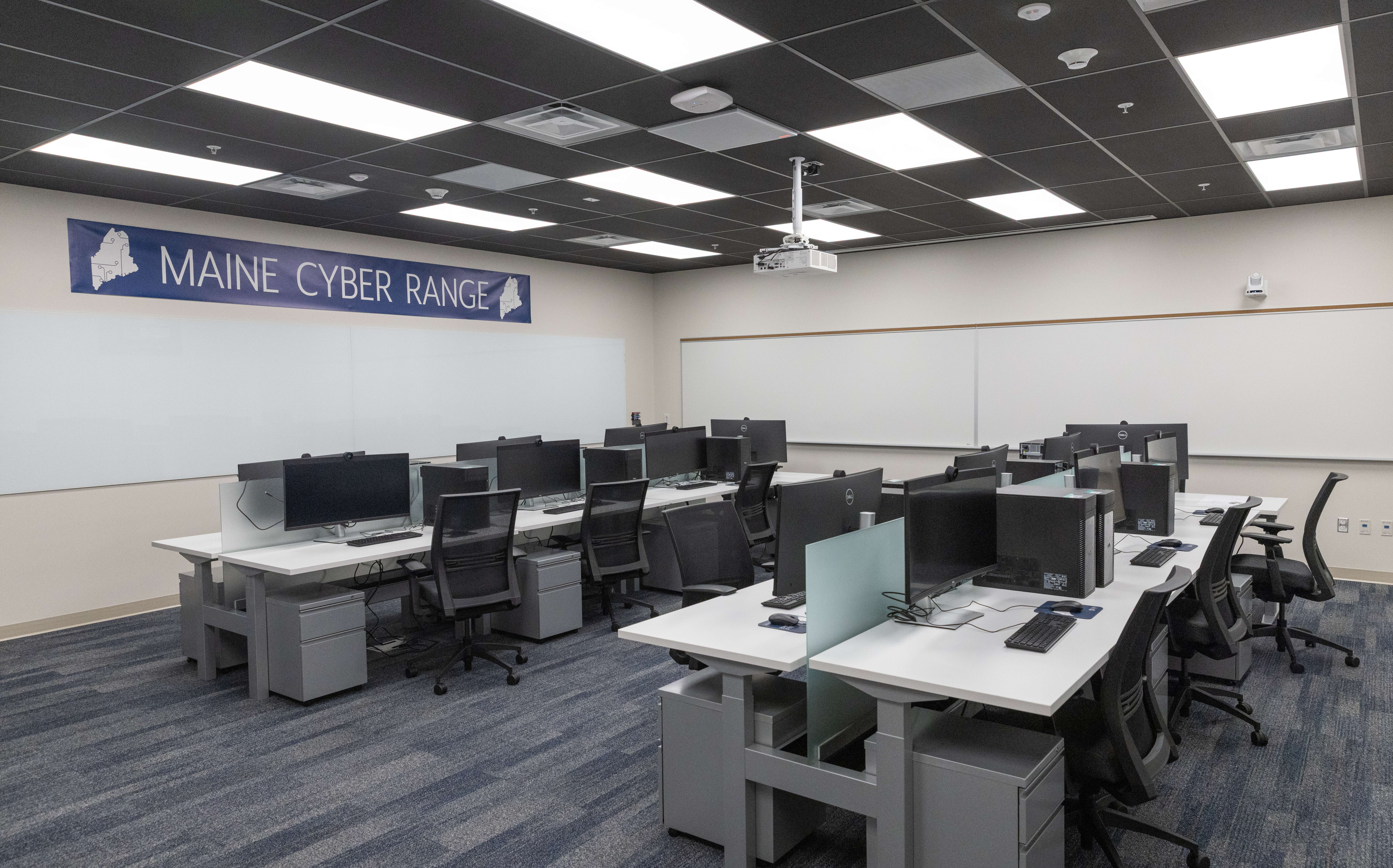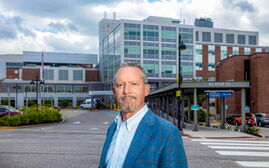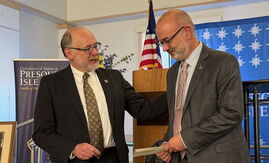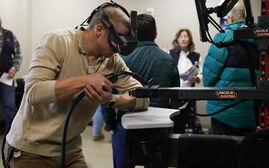
University of Maine at Augusta opens nursing and cybersecurity workforce development center
 Photo / Courtesy University of Maine at Augusta
The Capital Center site will expand the enrollment capacity in UMA's nursing program.
Photo / Courtesy University of Maine at Augusta
The Capital Center site will expand the enrollment capacity in UMA's nursing program.
Half a year after breaking ground, the University of Maine at Augusta cut the ribbon on its Capital Center for Nursing and Cybersecurity Workforce Development at 14 Marketplace Drive.
The 21,000-square-foot center, in the Marketplace at Augusta directly across from UMA’s main campus, has advanced simulation labs for nursing, a 3,000-square-foot cybersecurity training facility and collaborative classrooms, designed to give students real-world training environments that mirror the workplace they will enter.

The project was led by Lavallee Brensinger Architects and Consigli Construction Co.; both firms have a Portland office.
“The Capital Center represents UMA at its best, educating students with innovative tools and experiences that connect directly to careers,” said Jenifer Cushman, university president. “It allows us to expand our programs, welcome more students and strengthen Maine’s workforce in health care and cybersecurity.”
Funding
The center is a $7.15 million renovation of the former Purdue Global site, made possible through congressionally directed spending in fiscal years 2023 and 2024 secured by U.S. Sens. Susan Collins, R-Maine, and Angus King, I-Maine.
Additional support of $480,000 from MaineGeneral Health is helping UMA expand its nursing program to take full advantage of the facility and prepare more nurses for Maine’s workforce.
The University of Maine System is the state's leading provider of new nurses, conferring nearly 500 nursing degrees this year.
“With the opening of its Capital Center, the University of Maine at Augusta will further expand nursing education in support of its own enrollment growth and our system’s goal of doubling our output of nursing graduates,” said Dannel Malloy, the system’s chancellor.
Nursing
UMA’s nursing program grew from 91 students in 2019-20 to 271 in 2024-25. With the opening of the center, enrollment capacity is expected to grow to more than 400 students within the next four years.
According to the Maine Nursing Action Coalition’s 2024 workforce report, Maine is projected to face a shortage of more than 2,800 registered nurses by 2030. UMA’s expansion is expected to help meet the need.
The program will be supported by advanced simulation labs and training technology.
“Every simulation and lab experience in this new space will ensure our students are practice-ready upon graduation," said Shannon Gauvin, UMA’s director of nursing.
Cybersecurity
The cybersecurity space replaces a single classroom with a modern lab designed to support advanced training for students and provide specialized cybersecurity workshops for Maine’s businesses and municipalities.

Demand for skilled cybersecurity professionals continues to surge nationwide as organizations work to protect critical infrastructure, businesses and communities from cyberthreats. UMA is positioning itself to meet the need by giving students hands-on training with the same systems they will encounter in the workforce.
“Cybersecurity is one of the fastest growing fields in the country, and Maine needs skilled professionals to keep our businesses, municipalities and communities safe,” said Henry Flech, a UMA professor. “This new lab gives our students the kind of training they will experience in the workforce and prepares them to lead in a field where the stakes are high.”
“Maine’s future depends on expanding our highly skilled workforce, especially in fields like health care and cybersecurity,” Collins said. Classes at the center will begin next week, welcoming students into a space built for innovation and applied learning.
“When I speak with Maine people about their concerns, I hear about workforce development, health care and cybersecurity impacting communities and homes,” said King.
The university is also partnering with Mastway Development on a new residence hall in Hallowell. Scheduled to open in fall 2027, the facility will add 60 beds and a full-service dining hall.














0 Comments